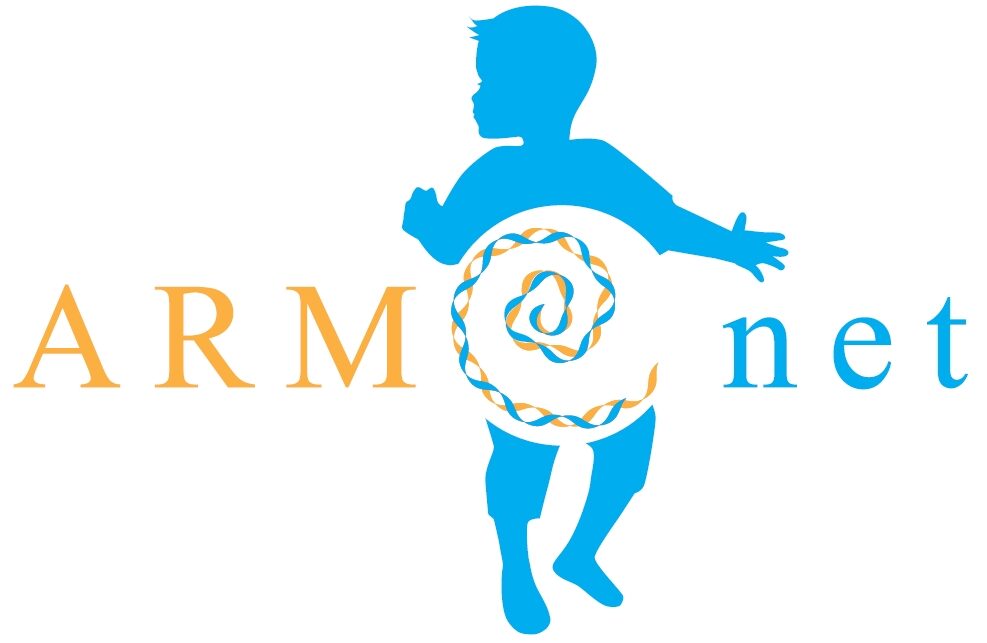In February 2008 Heiko Reutter and Ekkehart Jenetzky applied together with further
researchers for a national research grant regarding investigation in congenital uro-rectal
malformations (CURE-Net), which started in spring 2009 and was funded during three years
by the German Federal Ministry of Education and Research (Bundesministerium für Bildung
und Forschung, BMBF). Since 2013 they receive funding in two core projects by the German
Research Foundation (Deutsche Forschungsgemeinschaft, DFG).
Heiko Reutter, geneticist and pediatrician, was active in the self-help organization for the
bladder exstrophy complex (SHG BE e.V.) and Ekkehart Jenetzky, epidemiologist and child
and adolescent psychiatrist was involved in the self-help organization for people with
anorectal malformation (SoMA e.V.). These two German patient-organizations for rare
diseases had already been working closely together for the benefit of cloacal exstrophy-
patients. They belong to the largest respective organisations worldwide.
Due to the successful application of CURE-Net, the presidents of the large Italian self-help
organizations for these diseases Massimo Di Grazia (A.E.V. Onlus) and Dalia Aminoff
(AIMAR) invited them to a meeting in the Pediatric Department of Padova, Italy (hosting
surgeons: Paola Midrio, Piergiorgio Gamba) on February 5th 2010. An intensive discussion
took place, concerning possibilities to implement such a successful research project in Italy or
even further countries. Similar to the German research project, representatives of the patient
organization, were the driving force for continuous research and improvement in spite of the
increasing financial difficulties.
At the same time, there was another branch of ARM investigation originating from the
Netherlands. In Nijmegen, Iris van Rooij, an epidemiologist, and colleagues had initiated the
AGORA initiative, a Dutch research/biobank project for genetic and environmental risk
factors in congenital anomalies and childhood cancer. AGORA was founded in 2005 and
from 2007 onwards data was collected from ARM patients and their parents through several
university hospitals in the Netherlands.
Due to the recommendation of the German self-help organization for anorectal malformation,
Eberhard Schmiedeke, a pediatric surgeon from Bremen, was trained several years ago in
Nijmegen, the Netherlands, in a Multidisclinary Behavioural Approach of Defecation
Disorders. In January 2009, Ivo de Blaauw, a pediatric surgeon from Nijmegen contacted Dr.
Eberhard Schmiedeke, regarding a European research project. Eberhard Schmiedeke, a
sustaining member of SoMA, involved Ekkehart Jenetzky, one of the founders of the CURE-
Net initiative. Hence, Ekkehart Jenetzky came into contact with Iris van Rooij, the
epidemiologist of Nijmegen, who as a consequence filled in a European grant proposal,
involving the German group with their register approach. The Dutch ARM group (Iris van
Rooij, Ivo de Blaauw) and Ekkehart Jenetzky with Eberhard Schmiedeke met at the Pediatric
Colorectal Club Meeting in Graz, Austria (14th and 16th of June 2009) for an unofficial
conversation, after the presentation of the CURE-Net approach and AGORA results.
Unfortunately the first joint European grant application was not funded.
A parent’s meeting on 24th January 2010 in Nijmegen was organized by the Dutch patient
organization for people with anorectal malformation together with the Germany self-help
organization (during a Colorectal Training course in Nijmegen). At this meeting, Ivo de
Blaauw spoke with Ekkehart Jenetzky about the genetic investigations in anorectal
malformation.
On April 28th 2010 Heiko Reutter invited German CURE-Net researchers, the Dutch AGORA
researchers, a French specialist in Currarino syndrome (Celia Cretolle) and the pediatric
surgeons of Padua, together with representatives of the patient groups (including Dalia
Aminoff and Nicole Schwarzer) for a first official joint meeting in Bonn, Germany. During
the following meeting at the 17th International Pediatric Colorectal Club Meeting on July 17th
- 19th, 2010 in Padua, Italy, the decision was made to focus on anorectal malformations and
fundamental research (genetics, epidemiology). Hence, it was suggested to call this group
ARM-Net and Ekkehart Jenetzky build an anonymized meta-registry to collect clinical data
from patient with ARM through the network. Iris van Rooij organized the first web page.
Furthermore the close involvement of self-help groups and development of common rules was
started.
First informal meetings
- First contact (January 2009)
- Graz (June 2009)
- Padua (Feb. 2010)
- Bonn (April 2010)
Regular Meetings:
- Padua, Italy (July 2010) – at the 17th International Pediatric Colorectal Club Meeting
- Bonn, Germany (October 2010) – a one-day ARM-Net workshop
- Ankara, Turkey (June 2011) – at the 18th International Pediatric Colorectal Club
Meeting - Heidelberg, Germany (October 2011) – during the CURE-Net conference
- Rotterdam, the Netherlands (January 2012) – during the ARM surgery training course
- Rome, Italy (June 2012) – at the 19th International Pediatric Colorectal Club Meeting
- Würzburg, Germany (November 2012) – a one-day ARM-Net workshop
- Frankfurt, Germany (June 2013) – at the 20st International Pediatric Colorectal Club
Meeting - Nijmegen, the Netherlands (November 2013) – a two-day ARM-Net workshop
- Dublin, Ireland (June 15) – at the 21st International Pediatric Colorectal Club Meeting
